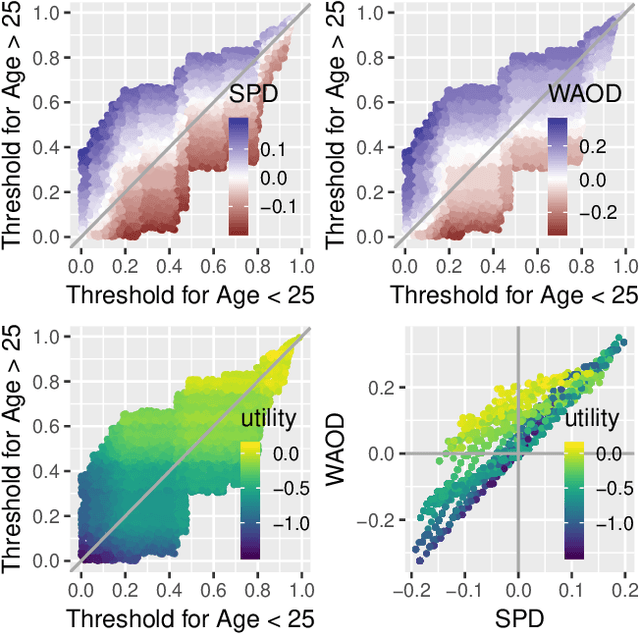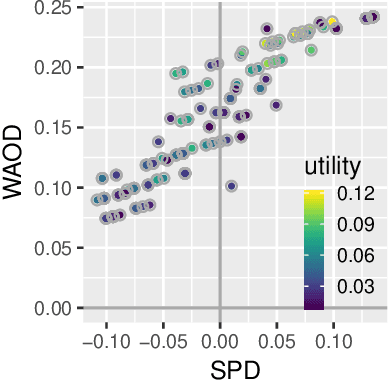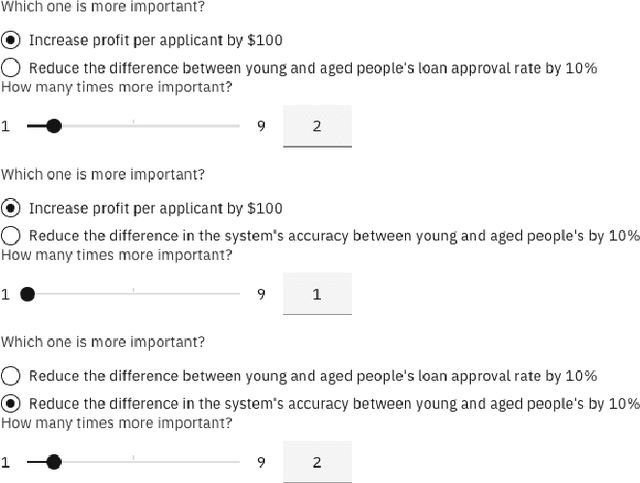Joint Optimization of AI Fairness and Utility: A Human-Centered Approach
Paper and Code
Feb 05, 2020



Today, AI is increasingly being used in many high-stakes decision-making applications in which fairness is an important concern. Already, there are many examples of AI being biased and making questionable and unfair decisions. The AI research community has proposed many methods to measure and mitigate unwanted biases, but few of them involve inputs from human policy makers. We argue that because different fairness criteria sometimes cannot be simultaneously satisfied, and because achieving fairness often requires sacrificing other objectives such as model accuracy, it is key to acquire and adhere to human policy makers' preferences on how to make the tradeoff among these objectives. In this paper, we propose a framework and some exemplar methods for eliciting such preferences and for optimizing an AI model according to these preferences.
 Add to Chrome
Add to Chrome Add to Firefox
Add to Firefox Add to Edge
Add to Edge